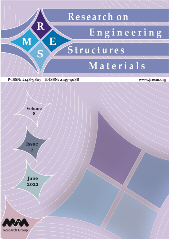Research Article
The effect of various mineral fillers on thermal, mechanical, and rheological properties of polypropylene
Lütfiye Altay1, Mehmet Sarikanat1, Merve Sağlam2, Tuğçe Uysalman2, Yoldaş Seki3
1Ege University, Faculty of Engineering, 35100 İzmir, Turkey
2İzmir Eğitim Sağlık Sanayi Yatırım A.Ş., 45400, Manisa, Turkey
3Dokuz Eylul University, Faculty of Sciences, 35160, Isparta, Turkey
Keywords
Abstract
Composite materials;
Mechanical properties;
Thermal properties;
Rheological properties
Polypropylene is one of the commodity thermoplastics that is widely used in many different applications such as automotive, building, electric-electronics, textile, and packaging industries due to its properties and favorable cost-benefit ratio. The incorporation of mineral fillers such as mica, talc, wollastonite, and calcium carbonate into thermoplastics is a common practice in the plastics industry in order to reduce the production costs of molded products and enhance processibility, mechanical, and thermal properties. Mineral filled polypropylene composites provides high mechanical stiffness, thermal stability, and good dimensional stability over a wide temperature range. The filler weight ratio, type, size, and dimension have significant effect on mechanical, thermal, physical, and rheological properties of composites. Four different mineral fillers (talc, mica, calcite, and feldspar) at weight fractions of 40% were compounded with polypropylene by using a twin-screw extruder. Test specimens were obtained by injection molding process. The effect of various filler types on rheological and mechanical properties of polypropylene was investigated in this study. It was found that talc and mica loadings at 40 wt. % into polypropylene increased the flexural strength of polypropylene. The rheological properties of samples were more affected by the talc than calcium carbonate.
© 2021 MIM Research Group. All rights reserved.

